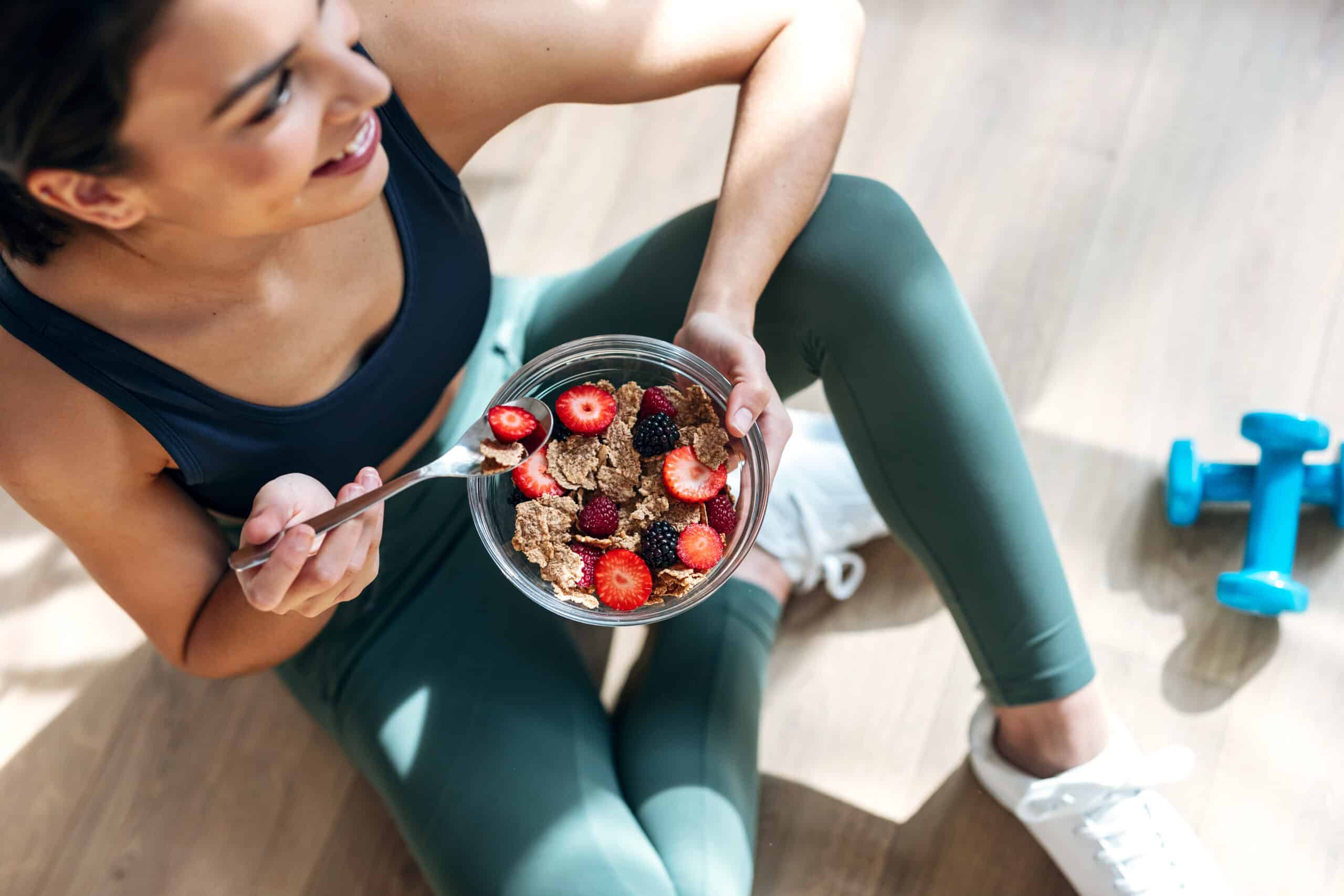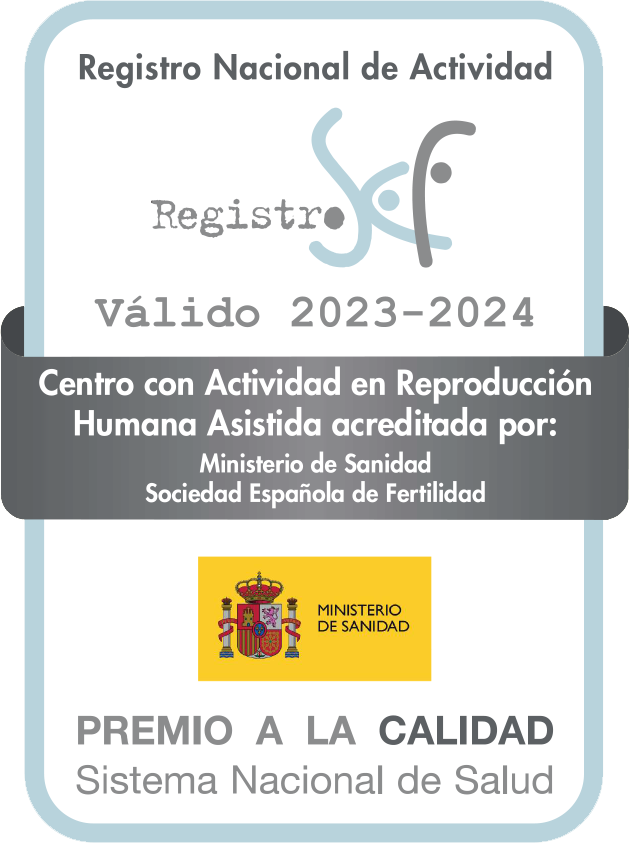Although there is no evidence of a clear link between nutrition and fertility, it is known that factors such as a woman’s diet, body mass index (BMI) and body composition can affect her fertility and her chances of becoming pregnant. So, if you are thinking of becoming a mother, either naturally or with the help of fertility treatments, it is worth seeking the advice of a nutritionist. Here you will find some useful tips.
In this post, we offer general recommendations with the advice of Xus Murciano, head of the Nutrition Unit at Dexeus Mujer. However, it is best to make an appointment with a nutritionist to establish a personalised healthy eating plan, as not all women have the same nutritional needs. This is especially true if you have any health problems that may impact the assimilation of food or compromise your fertility, such as food allergies or intolerances, a tendency to gain weight, diabetes, thyroid disorders, polycystic ovarian syndrome, endometriosis, etc.
From a nutritional point of view, what macro or micronutrients can affect fertility in women?
Experts classify nutrients into macro and micronutrients. The first group includes carbohydrates or “carbs”, proteins and fats. These are nutrients that we need in large quantities and that give us energy. Micronutrients, on the other hand, are nutrients that our bodies need in small amounts and do not give us any energy. This group includes vitamins and minerals.
MACRONUTRIENTS:
Carbohydrates. Both quantity and quality are important. Eating slow-absorption carbs is associated with improved fertility: wholegrain cereals and derived products, brown rice and pulses (chickpeas, lentils, green beans, peas, etc.).
Proteins. You should give priority to plant-based proteins. You will find them in nuts and pulses. If you eat nuts, bear in mind that the healthiest ones are those without any added salt or sugar.
Fats. You should reduce saturated fats (present in processed and animal foods) and trans fats. The former can alter ovulation, and the latter can increase insulin resistance, which could affect your blood sugar regulation. We recommend monounsaturated fats (found in olive oil, oily fish and avocado). Omega-3 fatty acid supplements can sometimes be helpful in fertility treatments.
MICRONUTRIENTES:
Ácido Fólico. Influye en la calidad del óvulo y es esencial para prevenir defectos congénitos durante el embarazo. Se aconseja tomar suplementos al menos 1-3 meses antes del embarazo y 2-3 meses después. Se encuentra de forma natural en verduras de hoja verde ancha y ocura -espinacas, acelgas- y en legumbres
Vitamina B. Participa en el desarrollo y función de la placenta. Se encuentra en cereales integrales, tempeh, frutos secos y miso.
Vitamina A. Tiene una acción antioxidante y protege de la acción nociva de los radicales libres que se forman de forma natural cuando las células realizan funciones metabólicas y también ante la exposición a contaminantes ambientales y el consumo de sustancias tóxicas como el tabaco y el alcohol. También favorece la síntesis de hormonas sexuales. Está presente de forma significativa en zanahorias, espinacas, boniato, batata…
Vitamina D. Se ha observado que niveles bajos pueden influir en una menor reserva ovárica en edad reproductiva tardía (a partir de 40 años) o incluso predisponer a una menopausia más temprana. Su déficit puede favorecer la resistencia a la insulina. Actualmente una gran de la población presenta déficit, pero ha de ser el médico quien indique si es necesario tomar suplementos. Tomar el sol e ingerir pescado azul ayuda a mantener un correcto nivel de vitamina D
Vitamina C. Actúa como antioxidante y ayuda a contrarrestar los efectos del estrés oxidativo sobre los óvulos y el daño celular. Son ricos en vitamina C las fresas y los cítricos, el brócoli y el tomate.
Iron. It promotes ovulation, is involved in embryo implantation and prevents the risk of developing complications at the beginning of pregnancy. It also prevents neural tube defects. Foods rich in iron are meat, eggs, clams, broccoli, pulses and pumpkin seeds.
Zinc and selenium. These antioxidants protect egg cells from oxidative stress. They are involved in the structure and functioning of the placenta and in the development of the foetal nervous system. They are found in fish, seafood, meat, poultry and eggs.
Iodine. It is involved in the synthesis of thyroid hormones. Its deficiency is associated with an increased risk of miscarriage. Seafood, green beans and chard contain iodine.
And if you have a male partner…
Male fertility has declined in recent years, a fact that is associated with exposure to environmental pollutants and lifestyle changes. This shows that our individual habits and environment can influence fertility. Experts recommend:
Controlling excess weight and avoiding obesity. It has been proven that men who are overweight or obese have a lower number of spermatozoa than those with a healthy weight. Men should moderate their intake of saturated fats and avoid processed foods and trans fats. It is also important to exercise regularly and avoid toxic substances (alcohol and tobacco).
Healthy eating. It is advisable to eat a diet rich in fruit and vegetables which provide antioxidants (such as vitamins E and C) that improve the quality and number of spermatozoa. Men should also ensure a good intake of calcium, vitamin D and folic acid (found in pulses, green leafy vegetables and whole grains) and zinc. Low zinc levels are associated with a reduction in semen volume and a decrease in testosterone.
Regular but moderate exercise. Sport is beneficial but should not be anxiety-inducing. Studies of elite athletes show that intensive exercise has a negative influence on sperm morphology and increases sperm DNA fragmentation. This fragmentation has a negative impact on male fertility and increases the risk of miscarriage in women.





